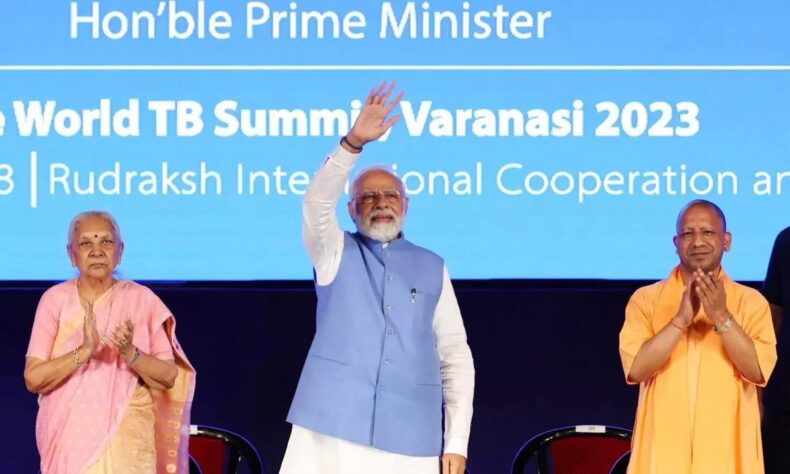Table of Contents
World Tuberculosis Day 2024 has the theme of ‘Yes! We can end TB!’ which aims to inspire hope and promote strong leadership, increased investments, faster adoption of new WHO recommendations, innovation, quick action, and multi-sectoral collaboration to fight the TB epidemic.
This year, there is a critical opportunity to raise awareness and political commitment for the UN High-Level Meeting on TB, which will take place on Friday, 22nd September 2024.
The focus of World TB Day is on encouraging countries to make progress towards the 2024 UN High-Level Meeting on TB. WHO, in partnership with other organizations, will call on Member States to accelerate the rollout of the new WHO-recommended shorter all-oral treatment regimens for drug-resistant TB.
Every year on March 24, World TB Day is observed to raise awareness about TB and global efforts to end the epidemic. This date marks the day in 1882 when the bacterium that causes TB was discovered.
India’s Pradhan Mantri’s TB Mukt Bharat Abhiyan has set an ambitious goal of eliminating tuberculosis (TB) by 2025.
However, with about 3.1 million TB patients in the country and only a 1.5% decline rate in the incidence of TB cases, there is a need to accelerate the decline rate of TB cases to more than 15% annually, which is a daunting task, according to Dr. Vishal Rao, a Fellow at Royal Society of Medicine and Director at Head Neck Surgical Oncology Department at HealthCare Global Cancer Centre.
He suggested strengthening the peripheral Primary Health Centre (PHC) programmes and stronger mass media campaigns to raise awareness, allocating more funds to the National TB Elimination Programme for improved manpower, awareness campaigns, counseling, and detection. Dr. Rao has also stressed the need to implement stringent policies to counter the tobacco industry, which contributes to 40% of TB cases in India.
World Tuberculosis Day , Summit in Varanasi today
This morning, during the One World TB Summit at Rudrakash Convention Centre in Varanasi on World Tuberculosis Day, Prime Minister Narendra Modi launched various initiatives, including the TB-Mukt Panchayat initiative and the official nationwide rollout of a shorter TB preventive treatment (TPT). He expressed India’s commitment to ending TB by 2025 and emphasized the need to maintain political pressure and financial resources.
Apart from launching new initiatives, PM Modi also emphasised the need for collaboration and shared responsibility in the fight against TB. He urged all stakeholders, including governments, civil society, healthcare providers, researchers, and the private sector, to come together and work towards achieving the goal of ending TB.
He talked about how TB is not just a disease that affects individuals, but a public health problem affecting communities and nations, and the need for a collaborative and multi-sectoral approach to tackle the disease effectively.
He also highlighted the importance of innovation in addressing the challenges posed by TB and stressed the need to leverage technology and innovation to develop new and improved tools for TB diagnosis, treatment, and prevention.
The TB-Mukt Panchayat initiative launched by PM Modi aims to create a TB-free ecosystem at the panchayat level. Under this initiative, panchayats across the country will be mobilised to create awareness about TB, screen people for the disease, and provide treatment and support to TB patients.
The pan-India rollout of the shorter TB preventive treatment (TPT) is another significant step toward ending TB in the country. TPT is a course of antibiotics that can prevent latent TB infection from progressing to active TB disease. The rollout of TPT is expected to benefit millions of people, especially those who are at a higher risk of developing TB, such as people living with HIV, household contacts of TB patients, and healthcare workers.
The global target to end TB is by 2030, but India has pledged to end TB by 2025. Also, almost 80% of TB medications are produced in India, which demonstrates the pharmaceutical industry’s capacity to cooperate for the common good and India’s potential for global impact in the fight against the disease.
The task may be a daunting one, but with the commitment and efforts of all stakeholders, it is achievable. Pradhan Mantri’s TB Mukt Bharat Abhiyan and the goal to end TB by 2025 are significant steps toward this end. However, there is a need for sustained political and financial commitment, innovation, and collaboration to ensure that every single person in India has access to TB prevention, diagnosis, and treatment.













